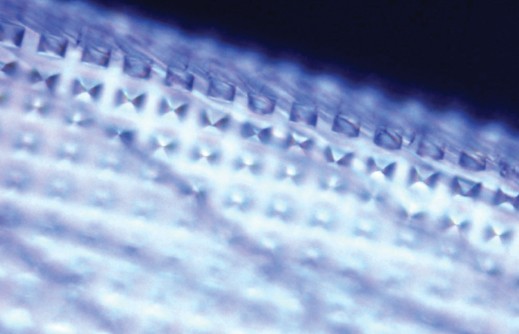
` Benjamin Tee, 33
A synthetic sense of touch could help both people and machines.
“As a kid I was always curious about things, and I tended to break things,” says Benjamin Tee. “One of the things I broke was my great-grandmother’s alarm clock—you know, back then it was a winding alarm clock, it was one of those really old antiques, and she got really upset when I broke it and I couldn’t fix it.”
The experience only made Tee more curious about how things worked, and now, through innovations in electronic skin and pressure-sensing devices, he is addressing much more complex problems than fixing an alarm clock.
As a PhD student at Stanford, Tee and colleagues built what he calls “a smart bandage.” Tape it on your wrist, “and it can detect your pulse on the radial artery near the wrist,” he says. “We did it in such a high-resolution manner that we can tell if your arteries are actually healthy.”
He also developed a highly pressure-sensitive electronic skin, which could someday coat prosthetic limbs to give them some of the sense of touch that human skin has. “Your brain needs a lot of feedback to do your daily activities, and the skin allows you to do that,” Tee explains. “The fact that I’m sitting down and not falling over—a large part is really because I’m getting sensory information from the chair.”

Such sensors have other applications: for example, a tiny wireless monitor can be implanted in the skull to measure pressure inside the brain, a technology he has tested in mice. Measuring cranial pressure is extremely important for people who have had brain injuries or are recovering from brain surgery, and doctors usually do it by implanting a catheter that runs through a small hole in the skull.
Today Tee has a Singapore-based startup, Privi Medical, that is developing diagnostic and treatment technologies. It should offer him more chances to fix problems, given that health care, he says, is “ripe for disruption.”
—Anna Nowogrodzki
Watch this Innovator at EmTech 2015
Meet the Innovators Under 35
